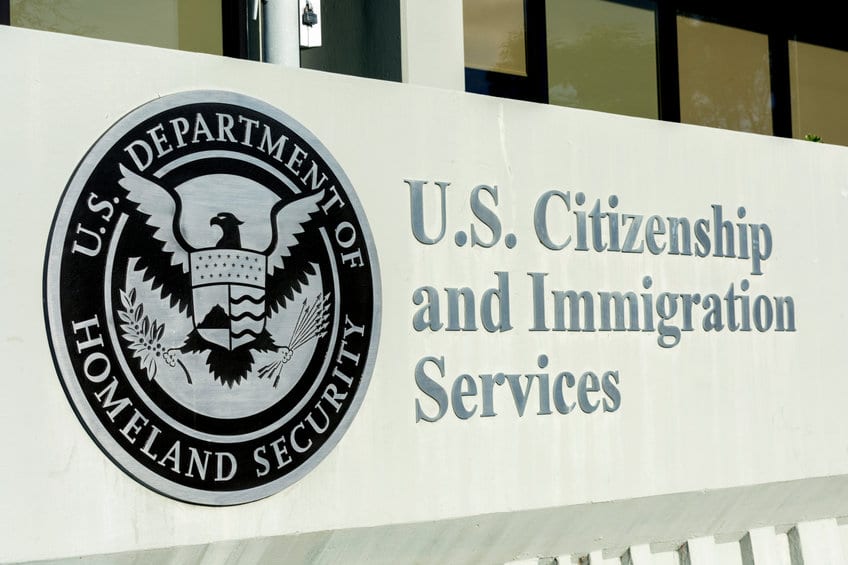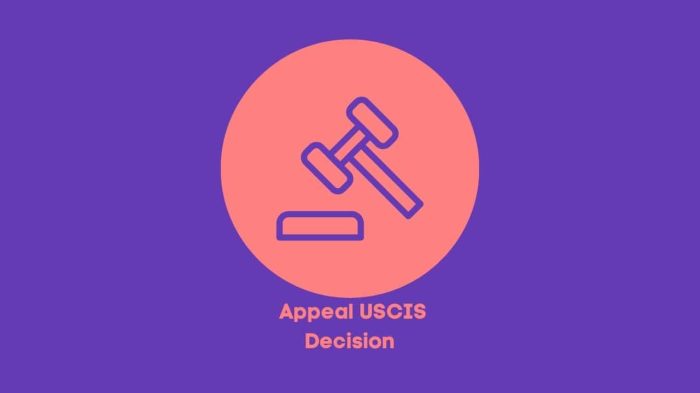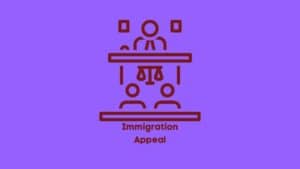Introduction
Can I do anything if I get an adverse decision from the USCIS? You probably might have thought about it. YES, you can appeal a USCIS decision to AAO (Administrative Appeals Office) or BIA (the Board of Immigration Appeals ). You have to file different forms depending on where you want to appeal. Information on whether your case can be appealed or not and where you can file the appeal can be found on your denial or revocation notice. Normally Form I-290B is used to appeal to most of the matters, but in this article, we will see some exceptions and appeals to BIA.
What will happen if I appeal a USCIS decision?
If you are not happy with adverse USCIS decisions regarding your application, you may want to appeal the decision. The USCIS office that made the original decision will first review the appeal and determine whether to grant the requested immigration benefit or not. You need to file different forms depending upon the petition the decision was given.
I received a decision from the USCIS rejecting my immigration petition. How will I know whether I can appeal the decision or not?
Whenever you receive an unfavorable decision from the USCIS, your denial or revocation decision will include information about your appeal rights. In most cases, you will have the right to appeal the USCIS decision; however, you can ask an immigration attorney about your rights to appeal if you are still unsure.
What are the ways to appeal a USCIS immigration decision?
Typically, all the immigration decisions by the USCIS can be appealed by filing Form I-290B (Notice of Appeal or Motion); however, there are certain exceptions to that. You can go here if you want to read more about Form I-290B. Some visas have a different way of appeal. These are-

Appeals of decisions on an N-400, Application for Naturalization
Suppose you have reasons to believe that your N-400 application is wrongfully rejected or that your citizenship is wrongfully denied after your interview. In that case, you have an option to appeal the USCIS decision by filing an appeal on Form N-336. This form allows you to appeal an adverse decision by the USCIS on your citizenship application.
Appeals of decisions of special immigrant workers and legalization applications and termination of lawful temporary resident status under sections 210 and 245A of the Immigration and Nationality Act
Suppose you are denied permanent residence, temporary residence, or a waiver of grounds of inadmissibility under the amnesty program provisions of the Immigration Reform and Control Act of 1986 (IRCA). In that case, you can appeal the decision to the USCIS Administrative Appeals Office using Form I-694. The filing fee of this Form is $890. You have to mail this form to the address given on the Notice of Denial.
Appeals of decisions on an I-130, Petition for Alien Relative, or other decisions that are appealed to the BIA
If you want to appeal on an I-130 petition, or Form I-360 Widow(er) or other decisions by USCIS that are appealed to the BIA(the Board of Immigration Appeals), you can file Form EOIR-29. The filing fee for EOIR-29 is $110. You can file the appeal according to the instructions in the decision letter received from the USCIS. To make sure that the USCIS accepts your form, include a copy of the decision letter received from the USCIS.
What are the decisions AAO gives on appeals?
The AAO takes different actions per the appeals. Typically the following actions on appeals are taken by AAO-
Sustain – If an appellant can show that they are eligible to seek an immigration benefit, the AAO may order the petition or application to be approved.
Dismissal – If an appellant fails to prove eligibility for the desired immigration benefit, the AAO may dismiss the appeal. Also, suppose the appellant does not respond to an RFE or NOID within a specified period of time. In that case, the AAO may dismiss the appeal as abandoned.
Summary Dismissal – The AAO has the authority to dismiss an appeal summarily if the appeal fails to establish any legal or factual errors in the initial decision.
Reject – The AAO can reject the appeal if-
- The appeal is untimely filed
- Filed Incorrect fees
- Case types that do not fall under the AAO’s jurisdiction, including appeals of AAO decisions
- The party submitting the appeal does not have legal standing in the proceeding.
- Form I-290B is not signed.
- Form I-290B is signed by a representative, but there is no accompanying Form G‑28.
Remand – When a decision is adverse, the AAO might remand it to the office that made it and order them to take further action and enter a new decision.
What are motions, and how are they different from appeals?
A motion is of two types – Motion to reopen and Motion to reconsider.
Motion to reopen means that you are requesting the immigration office that issues the unfavorable decision to reconsider its decision based on the new facts.
You file a motion for reconsideration to ask the office that made an adverse decision to revisit its decision based on an incorrect application of law or policy. Unlike appeals, motions are made to the immigration office, which gives the decision.
Conclusion
If you think that your case can be appealed but are unsure which form to use, you can contact us. Our experienced immigration attorneys have helped many to get their original decision reversed in their favor, and you might be lucky to get yours too.








 by Prozco®
by Prozco®